East Timor, Asia's youngest nation, becomes ASEAN's 11th member
‘In Angola nobody is free,’ activist Luaty Beirao tells DW
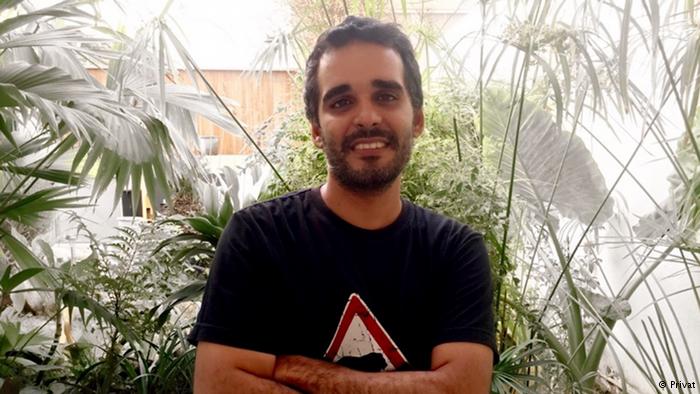
Luaty Beirao spent more than one year in prison together with 16 other activists. They were arrested on suspicion of plotting to overthrow the government. All they had done was discuss a book by US political scientist Gene Sharp about using non-violent resistance against dictatorships. Since the end of June 2016, Luaty Beirao has been free because the Angolan president Jose Eduardo dos Santos declared an amnesty.
With one exception, Dago Nivel, all the other activists have also been released. They are not allowed to leave Angola and have to appear in court once a month.
Luaty Beirao was born in Luanda in 1981 into an Angolan elite family. His father Joao Beirao was a member of the ruling MPLA party and the first director of president Jose Eduardo dos Santos’ personal foundation.
In an interview with DW, Luaty Beirao, who holds Angolan and Portuguese citizenship, spoke about living with fear in Angola.
DW: Do you feel free?
Luaty Beirao: No. I already did not feel free before my detention. In this country nobody is really free. People live in fear. And somebody who is afraid, is not free. In the concrete case of myself and my fellow activists, then of course I do not feel free. If that were the case, I would be able to move freely in the world.
In August the amnesty law came into effect. What is your position on that?
In the case of myself and the others an amnesty does not make a lot of sense because for us the presumption of innocence should apply until the case [after an appeal was lodged] is dealt with by the Supreme Court. But this has not happened so far – and the regime has no interest in seeing an appeal verdict. I am absolutely not in agreement with being given an amnesty for something that we did not do. I do not want an amnesty for that!
If there is a possibility to reject the amnesty, then I will try to do that even if it is difficult. I do not want an amnesty! I want this trial to continue to the end, up to the highest level of Angolan justice. I want to test how strong our institutions are. In fact they are extremely weak and highly dependent on the executive. Our institutions are not worthy of a democracy and a state governed by the rule of law. That is exactly what we want to build: a democracy and a state governed by the rule of law.
So you want the trial to continue to the end?
Yes, regardless of the consequences. Even if the Supreme Court confirms the first verdict and I have to return to prison to complete my jail term of five and a half years.
There are general elections scheduled in Angola for 2017. What are the activists’ plans?

Many of us do not believe in this election process. We think that it is about a very badly hidden dictatorship. And normally dictatorships do not hold elections to then lose them. We have already seen this [in the last elections in Angola] in 1992, 2008 and 2012.
Many of us feel that the election process is not transparent or credible. But we already have some ideas how we as citizens can minimize, denounce and reveal the repercussions of the election fraud, as well as preventing some election abuses.
Other activists have already decided not to vote and to call for a boycott. But this does not apply to all of us.
Would you consider joining a political party?
No, this is out of the question for me. I believe the political parties have understood this, since they do not ask me any more if I would be available for them. I have not given this much attention and I believe it will stay that way.
Do you sometimes think about founding your own party?
I do not think about that and I also do not want to insist on it to the others. I believe that people should be free to take the course they believe will best combat dictatorship. If a group of us activists or young Angolans believe they can achieve that with a political party, then I would not stand in their way. But I am not sure if I would support a party just because friends or other activists have founded it.
So you do not want to officially become active in a political party?
I do not want to rule it out permanently but at the moment it is totally inconceivable for me.
What’s your assessment of the work of the Angolan opposition?
First of all we need to consider UNITA (National Union for the Total Independence of Angola) because among the opposition parties it has the biggest apparatus. It just makes far too little of of the potential of all its members and followers. Unfortunately we have a really weak opposition.
What should the opposition have done differently?
The regime took control of an institution that should actually be independent and that is the National Election Commission (CNE). The regime dictates how the election process should be conducted and the opposition parties only issue statemdents to complain. That is totally insufficient for me.
Turning now to Angolan civil society – did you expect more from it?
I did not have great expectations – simply because I do not even know if we really have a civil society that deserves the name. There are individual, very valuable persons, who have a lot of goodwill. But they are not in a position to make a real difference.
I believe that our civil society lacks organization and that it is just not big enough. But I would rather criticize those who oppose the government as political parties and not civil society.
- Angolan activist Luaty Beirao was released from prison under a government amnesty earlier this year.


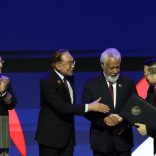
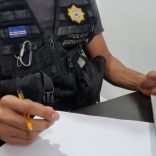


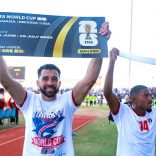
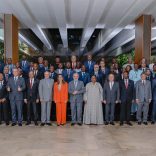




Leave a Reply
Be the First to Comment!
You must be logged in to post a comment.
You must be logged in to post a comment.